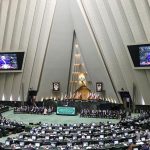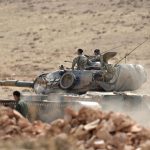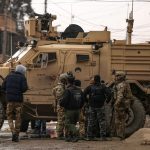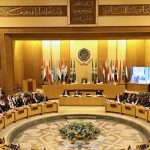What is behind the re-emergence of ISIS after the Hasakah attack in Syria?


Some writers referred to a “political and operational investment” as well as a media investment for the organization’s presence, while others spoke about the goals of the attack on Hasaka prison.
Objectives of Guiran prison
Abdul Nasser Al-Ayed in the Lebanese city newspaper, the goals that the organization wanted to investigate Guiran prison, as he believes that the new leader of the organization ‘wanted to begin his reign to a retirigue and his place.’
Related Posts
The author says the organization’s leader also wanted to “thoroughly supply the strength of the organization at least five thousand elements, through the fate of what we estimate in the hundreds of aspirations who have been in the fight, but what happened is the loss of detainees and boys together.”
Al-Ayed says that among the goals are also “extending control over a territory, resuming the state of the ‘state’… and making the organization again the focus of international attention, after its star faded, and no one heard of it, and this goal was certainly achieved during the days of the operation.” The writer points to the reason for the organization’s failure to achieve its goals, and he attributes it “in the first place to the unrealism of the scheme, which relied on only two elements, i.e. surprise and suicide bombers.”
In his article published in the London-based Rai Al-Youm newspapers and the Yemeni eighth day, Muhammad Bashar says that the organization’s attacks on Ghweran prison showed several points, the most important of which is “the loss of the popular incubator in addition to the inability to maintain the positions it controls,” which makes him “confused to turn into a group of uncontrolled gangs.” And the lost, to end up returning to the sleeper cell system and freezing the idea of expansion that froze on the walls of the industry prison inside the city of Hasaka.”
The London-based Rai Al-Youm newspaper believes that the organization may “try to strengthen its ranks and arsenal in an attempt to reorganize in both countries.” The newspaper points to the fears raised by the recent attacks about the “re-emergence of the organization after assurances of its defeat in Iraq and its decline in Syria.” In the London-based Al-Arab newspaper, Farouk Youssef says that “the lie of eliminating ISIS no longer convinces or deceives anyone.”
Youssef believes that the news about announcing “the death of the terrorist organization at different times, especially after the liberation of Mosul in northern Iraq in 2017, was not true, but rather was fabricated in order to serve as a mockery of others who were written to believe the news as mere materials for wars.” ISIS, which was invented in the context of the Arab Spring, in order to spread chaos.
He adds that ‘the terrorist organization has become an essential part of the scene. The picture is not complete without ISIS.” Youssef concludes by saying that “for the United States and Iran, the need for ISIS is no different from the need for the Popular Mobilization Forces, Hezbollah or the Houthis… Chaos is what is needed.”













